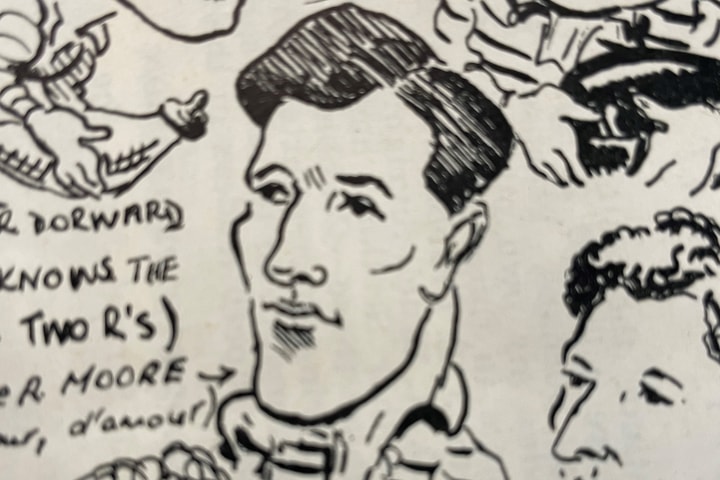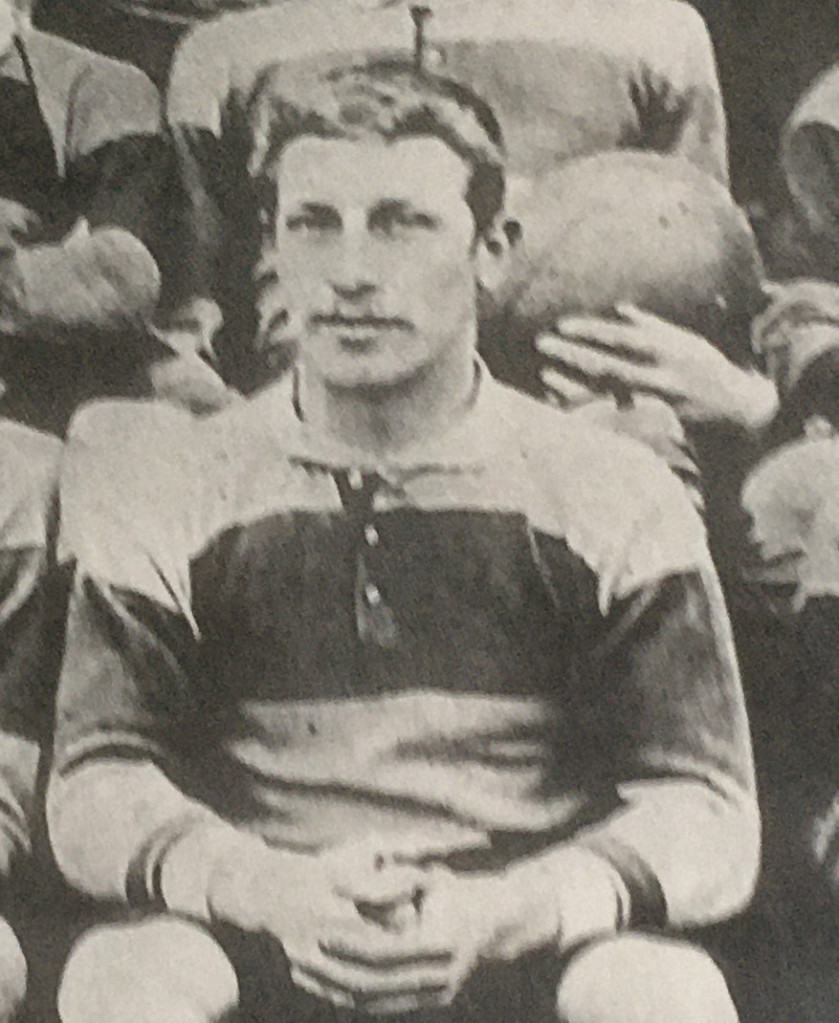
21 November 2025

Extensive research into the original team choices in all the major internationals played between 1871 and 1995 when the game went professional suggests that there were over 90 players who had the misfortune to be selected to play for their country in a test match but who never took the field and so remained uncapped.
Early international team lists published in the 19th century newspapers were not free from error and, on rare occasions individual players were either unable or unprepared to travel - a pre-match crossing of the Irish sea was never popular - or preferred to play for their club sides rather than their countries. Whatever the obstacles in those early years, the lure of the first cap was and has always remained very strong.
Illness or injury were the most common reasons for players to withdraw after selection. The young nineteen-year-old WJ 'Billy' Bancroft replaced the injured Newport full back Tom England to win his first cap against Scotland on 1 February 1890. In the club match between Newport and Penarth a week earlier, Tom England had the misfortune to suffer a serious injury to his thighbone in the final five minutes of the match. There was thus no question of him playing for Wales a week later and the South Wales Daily News paid a fulsome tribute to him on the Monday after the club match:
"Everyone will regret the accident to England, Newport's full back, which renders it necessary for Wales to do without him on Saturday next. Seeing that England's claims to a place in the Welsh team were persistently advocated in this column, no one can be more sorry than yours truly to see him deprived, through no fault of his own, of honours he had been adjudged worthy of."

Newport's Tom England
For the unlucky Tom England it was to be his only opportunity to win that coveted cap as Billy Bancroft proceeded to win 33 caps in succession. It would be a further twelve years before another Welsh full back, Jack Strand Jones of Llanelli. graced the international stage in January 1902.
An additional hazard in the 19th century was the relatively frequent postponement of international matches due to bad weather and frozen grounds. By the time the match had been rescheduled and played, the originally chosen player might have picked up an injury and been unable to turn out.
Sam Davies, a forward from Neath, was the victim of a tough selectorial decision in 1899. Having played England (the country) early in January, the Welsh selectors picked a side to play Scotland at Inverleith on 28 January. The match was postponed for a week due to a very heavy frost and the selectors brought in Sam Davies to replace Llanelli's Dai Daniel who had fractured his shoulder in a club match. Further postponements meant that the match was postponed three more times before the match was eventually played on 4 March, by which time Sam Davies had been replaced by the original first reserve in January, Dick Hellings of Llwynypia who had recovered from injury in time to be available for the match. Poor Sam Davies was never given another chance to win his cap, a victim of the most postponed international match in rugby history.
On rare occasions matches were completely cancelled. This led to two English players, Percy Robertshaw of Bradford and Harry Eagles of Salford, being awarded their England caps by the Rugby Football Union in 1888 although England did not play any international matches that season due to a dispute over representation on the newly formed International Board. Neither player ever took the field for England in an international.
The only case known of family bereavement costing a player his cap was that of the New South Wales forward and captain Cecil Murnin who withdrew from the Australian team to play the All Blacks in August 1907 due to the death of his sister in the week leading up to the match. He never became a Wallaby either. Although picked for the Wallaby tour of the UK in 1908, his ill-luck continued when he fell ill on the ship voyage which necessitated his return to Australia before the team reached the UK.
Many players often faced a dilemma following their initial selection to play for their country. Sometimes the selectors chose their sides a fortnight or more in advance of the match and so the chosen player had to work out how to manage the next 10-14 days before stepping out for their country on the field of play as a full international. This might mean not turning out for their club on the Saturday before an international, or perhaps keeping quiet about a niggling injury which threatened to prevent them appearing on the international stage.
There is one known case of a player appearing for his club the weekend before an international and then being withdrawn by the national selectors because his play in the club match was not sufficiently impressive! Such a fate befell the unfortunate centre three-quarter, D Champromy of Lyon FC, who played against Stade Français the weekend before the international against South Africa in January 1913 and was summarily replaced by the French selectors, never to win an international cap.
The centre AJ Carrigg of Bective Rangers and Leinster had the misfortune to injure his ankle after selection for Ireland against Wales in March 1909. He withdrew from the Welsh match but was selected a second time to play against France a week later. Unluckily for him, his injury had not improved sufficiently, and he was again unable to take the field. Whether his form dipped in future seasons is unknown, but he was never chosen again by the Irish selectors.

Perpignan's Raymond Schiller
Raymond Schuller of Perpignan was the last of more than 50 players to miss out on a cap before the outbreak of the 1st World War changed everything. Selected to play for France against England in the front row in April 1914, he withdrew during the week of the match citing that he was not fit after three hard club matches. He may have hoped to be picked again the next season but there was to be no further opportunity for him to play for his country. Schuller died in combat only four months later at Rorbach in the Moselle region on 20 August 1914.
Sources:
The Book of English International Rugby 1871-1982 - John Griffiths (Willow Books 1982)
Encyclopédie du rugby français - Pierre Lafond et Jean-Pierre Bodis (Editions Dehedin 1989)
Fields of Praise - David Smith and Gareth Williams (University of Wales Press 1980)
History of Welsh International Rugby - John Billot (Roman Way Books 1999 - 3rd edition)
The First Wallabies - Peter Sharpham (Sandstone Publishing 2000)
Newspapers: L'Auto - Irish Times - Scotsman - Sportsman - South Wales Daily News - Western Mail
About the Author - A professional musician and arts administrator, Richard Steele has been on the committee of the World Rugby Museum at Twickenham since 2005 and is the co-author of the RFU's 150th anniversary book 'England Rugby 150 Years'.
Visit our website, book your visit and follow us on Facebook, Twitter and Instagram.